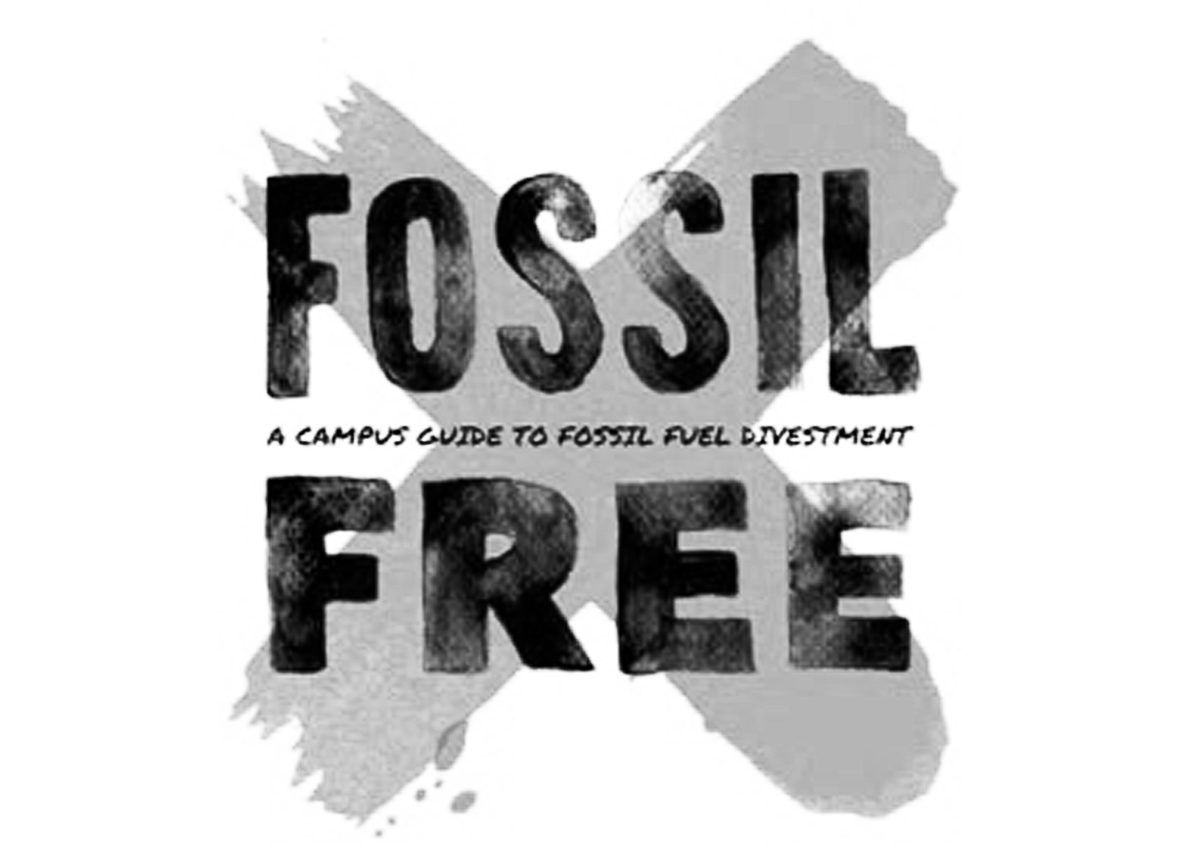A group of Gustavus students attended the “Do the Math” conference at the University of Minnesota on Nov. 30, 2012. Hosted by MN350, students, professors, and concerned citizens from around the state attended and learned about climate change and fossil fuel divestment.
Divestment is an investment term that means to sell stock in a company. The national organization 350.org is seeking to use divestment among institutions of higher education. They plan to reflect the educated public opinion that the national government needs to act on climate change.
Bill McKibben, author of the first book on climate change, explained to the crowd that fossil fuel divestment was important to send a message to both the government and fossil fuel companies. He intends divestment to lead the United States to undertake an immediate and aggressive plan to combat climate change to prevent global temperatures from rising 2 degrees Celsius (3.6 degrees Fahrenheit). This number was internationally agreed upon at the United Nations Framework Convention on Climate Change.McKibben sees the only existing obstacle to be fossil fuel companies that claim to own enough oil to raise global temperatures five times that number.
In an interview by James Stafford from Oilprice.com, McKibben said, “Profiting from companies that are overloading the atmosphere with carbon and changing the atmosphere is wrong.”
The irreverence of fossil fuel companies’ exploitation of the planet’s resources at the expense of other innocent human and animal populations; that produce none or few carbon emissions, highlights the social justice aspect of fossil fuel divestment. Pacific Islanders on islands such as Tuvalu and Vanuatu have experienced such substantial devastation as a result of climate change that they have been relocated from their island homes.
This social justice element is what drives many supporters of fossil fuel divestment at both the national and local level. Junior Environmental Studies Major Jennifer Steffen is a member of Divest Gustavus, and she sees the divestment movement as an opportunity for Gustavus to affirm its values as an institution.
“Everyone needs to grapple with the severe ethical and social problems involved with climate change, looking at the facts and reality. Our generation will not have the option to say, ‘It’s not our problem.’ Divest Gustavus is an opportunity to step up and prove ourselves as national leaders for something that really matters,” Steffen said.
Another member of the group Divest Gustavus is Mathematics and Physics Major Troy Seberson. He is currently planning a project to design, build and install a dual axis solar tracker to power the outdoor fountains, which currently take a considerable amount of electricity to power.
“Fifty percent of Germany’s energy is produced from clean, renewable sources. Fossil fuel companies spend one hundred million dollars a day searching for more oil when it could be used more productively building and utilizing solar panels,” Seberson said.
Divest Gustavus was started in December 2012 as a response to the nationwide divestment movement among institutions of higher education. So far the group has been working with Vice President of Finance Ken Westphal and Vice President for Institutional Advancement Tom Young ’88 to discuss the feasibility of accomplishing portfolio divestment over a five year period.
Westphal led the Financial Transparency session last December, an open forum for students interested in the College’s finances, and he explained the allocation of the endowment in mutual fund investments. Of over 30 mutual funds in which the College has investments, only one has environmentally responsible social screens, the PAX fund.
The goal of Divest Gustavus is to increase this low number and support environmentally responsible mutual fund managers. To achieve this goal the group will continue to work with both Finance and Advancement offices on preparing a proposal to submit for consideration by the Board of Trustees’ Investment Committee.
Director of Johnson Center and Implementation Liaison with the American College and University Presidents’ Climate Commitment (ACUPCC) Jim Dontje has been watching the development of the divestment movement at Gustavus and sees both possibilities and obstacles in achieving its goals.
“The mechanical and organizational feasibility of divestment will be easy. But politically, not so easy,” Dontje said.
In terms of “mechanical and organizational feasibility” both Hampshire College and Unity College have agreed to divest from fossil fuel companies in their portfolios since the divestment movement began. Unity College similarly invests its endowment in mutual funds, yet despite this potential obstacle, the college is going forward in its divestment decision because it is such a pressing, social justice issue.
Dontje sees divestment as both a “tool for change” and a “sensible long-term strategy for divestment.”
“The science of climate change is pointing to the need for more rapid action, and one can look at divestment as a necessary tool for change, or as a responsible investment strategy,” Dontje said.
Some Gusties stayed in Minneapolis after the “Do the Math” event for the Youth Conference, “Climate Math That Works,” where Sam Grant, from the Movement Center for Deep Democracy, gave the keynote address. He spoke about the immediate need for action and the collective responsibility of those present to share what they had heard: the powerful message that it is possible to halt climate change if we stop waiting and act now.
“You don’t have the right to be so weak and meek in the face of such serious need for action,” Grant said. “We need to build this plane while flying it.”
